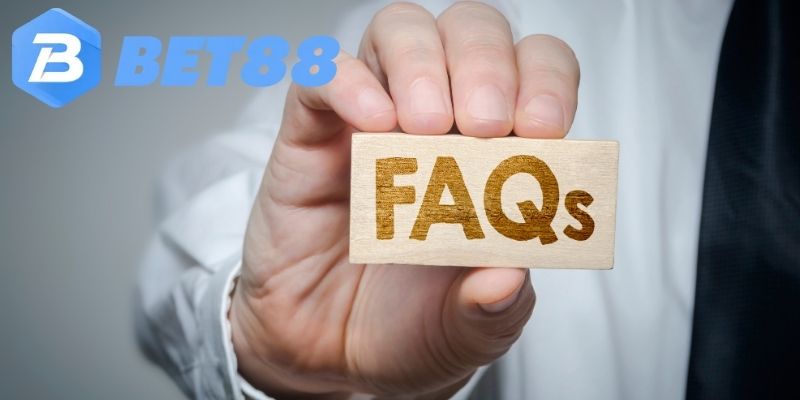
Giới Thiệu Nhà Cái Bet88 Với Nhiều Ưu Điểm Nổi Bật
Bet88 là nhà cái cá cược được nhiều người chơi tại Việt Nam tin tưởng lựa chọn nhờ giao diện dễ sử dụng. Với vô vàn những sản phẩm phong phú và dịch vụ hỗ trợ khách hàng tận tâm.
Nhà cái uy tín: nohu | 77win | 79king | okking | 32win | mmoo | KL99 | yo88 | gk88 | sodo66 | top88 | aog777 | 30jili
Tổng quan về nhà cái bet88 – sự lựa chọn cho người chơi cá cược

Bet88 là một nền tảng cá cược trực tuyến được cấp phép hoạt động hợp pháp từ tổ chức uy tín hàng đầu tại Costa Rica. Từ khi ra mắt tại thị trường Việt Nam, nhà cái này đã nhanh chóng chiếm được cảm tình của đông đảo người chơi nhờ vào sự đa dạng trong sản phẩm cá cược và khả năng phục vụ chuyên nghiệp.
Không chỉ cung cấp các trò chơi casino trực tuyến truyền thống như baccarat, tài xỉu, roulette, bet88 còn có hệ thống cá cược thể thao cực kỳ mạnh mẽ với các giải đấu lớn nhỏ trên toàn thế giới.
Người dùng sẽ dễ dàng tiếp cận với giao diện được tối ưu hóa tốt trên cả điện thoại và máy tính, mang lại trải nghiệm mượt mà. Ngoài ra, bet88 còn chú trọng đầu tư vào công nghệ bảo mật, đảm bảo tuyệt đối thông tin người dùng và giao dịch tài chính an toàn. Bên cạnh đó, nhà cái này còn có nhiều chương trình ưu đãi hấp dẫn như hoàn trả hàng ngày, thưởng nạp đầu tiên, khuyến mãi sinh nhật…
Nhờ việc sở hữu đội ngũ chăm sóc khách hàng chuyên nghiệp, hoạt động 24/7 qua nhiều kênh như chat trực tiếp, hotline và email, bet88 thực sự là điểm đến lý tưởng cho mọi người chơi đam mê cá cược trực tuyến.
Xem thêm: link 56win
Lý do nên lựa chọn bet88 khi tham gia cá cược trực tuyến
Sự đa dạng trong loại hình cá cược cùng các chính sách hỗ trợ người chơi chuyên nghiệp đã giúp bet88 trở thành một trong những nhà cái đáng tin cậy nhất hiện nay. Hãy cùng khám phá những điểm mạnh nổi bật giúp nền tảng này thu hút hàng triệu người chơi mỗi năm.

Giao diện thân thiện, dễ sử dụng
Trang chủ của bet88 được thiết kế tối ưu, giúp người chơi dễ dàng truy cập vào các danh mục như thể thao, casino, xổ số, game bài… Dù là người mới hay đã có kinh nghiệm, bạn cũng có thể làm quen nhanh chóng với giao diện hiện đại, tốc độ load nhanh và tương thích với mọi thiết bị.
Kho trò chơi đa dạng, cập nhật liên tục
Tại bet88, người chơi có thể thỏa sức lựa chọn hàng trăm trò chơi từ các nhà cung cấp game nổi tiếng như Evolution Gaming, Pragmatic Play, Kingmaker… Đặc biệt, khu vực casino trực tuyến mang đến trải nghiệm chân thực nhờ livestream với dealer xinh đẹp và chuyên nghiệp. Bên cạnh đó, phần cá cược thể thao tại đây cũng được đánh giá cao với tỷ lệ kèo hấp dẫn, cập nhật theo thời gian thực.
Chính sách khuyến mãi hấp dẫn
Bet88 thường xuyên triển khai nhiều chương trình ưu đãi nhằm tri ân người chơi như: thưởng 100% cho lần nạp đầu tiên, hoàn trả không giới hạn mỗi ngày, nhận giftcode miễn phí khi tham gia minigame. Ngoài ra, khách hàng thân thiết còn có cơ hội nâng cấp VIP để nhận thêm nhiều quyền lợi riêng biệt.
Các dịch vụ nổi bật chỉ có tại bet88

Để nâng cao trải nghiệm người dùng, bet88 đã đầu tư mạnh mẽ vào hạ tầng kỹ thuật cũng như phát triển các dịch vụ hỗ trợ toàn diện. Những tiện ích dưới đây là yếu tố quan trọng giữ chân người chơi gắn bó lâu dài với nền tảng.
Hỗ trợ khách hàng 24/7
Một trong những yếu tố được đánh giá cao nhất tại bet88 chính là đội ngũ chăm sóc khách hàng luôn sẵn sàng hỗ trợ bất kể ngày hay đêm. Tất cả các thắc mắc liên quan đến tài khoản, nạp rút tiền, khuyến mãi hay lỗi hệ thống đều được xử lý nhanh chóng, lịch sự và chuyên nghiệp.
Thanh toán linh hoạt, nhanh chóng
Bet88 hỗ trợ đa dạng hình thức thanh toán phổ biến như chuyển khoản ngân hàng, ví điện tử, mã QR… Tốc độ xử lý giao dịch cực kỳ nhanh chóng, nạp tiền chỉ từ 1-3 phút, rút tiền từ 5-10 phút là hoàn tất. Đặc biệt, nền tảng này cam kết không thu phí giao dịch từ phía người chơi.
Bảo mật an toàn tuyệt đối
Dữ liệu người dùng tại bet88 được bảo vệ bởi công nghệ mã hóa SSL 128-bit, đảm bảo mọi thông tin cá nhân và lịch sử giao dịch đều được giữ kín tuyệt đối. Hệ thống kiểm duyệt đăng nhập cũng được triển khai để ngăn chặn các hành vi gian lận hoặc truy cập trái phép.
Danh sách các hạng mục cá cược phổ biến tại bet88

Ngoài giao diện thân thiện và chính sách chăm sóc khách hàng chuyên nghiệp, điểm mạnh lớn nhất của bet88 nằm ở việc cung cấp nhiều hạng mục cá cược hấp dẫn, đa dạng và phù hợp với mọi nhu cầu giải trí của người chơi. Dù bạn là người yêu thể thao, đam mê bài bạc hay thích sự may rủi từ xổ số, nền tảng này đều có những sản phẩm được đầu tư bài bản về mặt chất lượng và tỷ lệ thưởng.
Sự đa dạng không chỉ đến từ thể loại trò chơi mà còn đến từ hình thức cá cược, tỷ lệ kèo và trải nghiệm người dùng. Dưới đây là các nhóm trò chơi phổ biến nhất mà bet88 đang cung cấp, thu hút hàng chục nghìn lượt người chơi mỗi ngày.
Cá cược thể thao
Cá cược thể thao là một trong những thế mạnh nổi bật tại bet88, thu hút một lượng lớn người chơi yêu thích thể thao trên toàn quốc. Với hàng trăm sự kiện thể thao mỗi ngày đến từ các giải đấu lớn như Ngoại hạng Anh, Champions League, NBA, ATP…, người chơi có thể lựa chọn đặt cược ở nhiều kèo cược khác nhau như cược chấp, tài xỉu, kèo tỷ số, kèo phạt góc…
Bet88 hỗ trợ cả hình thức cược trước trận và cược live, cập nhật kèo theo thời gian thực với giao diện dễ nhìn, thao tác mượt mà trên cả điện thoại lẫn máy tính. Đặc biệt, tỷ lệ cược tại đây được đánh giá là cao và cạnh tranh so với các nhà cái khác.
Sòng bài casino trực tuyến
Sòng bài casino trực tuyến tại bet88 mang đến trải nghiệm như thật, không khác gì đang ngồi tại các sòng bài lớn ở Macau hay Las Vegas. Với hàng loạt trò chơi hấp dẫn như baccarat, blackjack, roulette, sicbo, rồng hổ… được phát trực tiếp từ các phòng studio chuyên nghiệp, người chơi sẽ tương tác trực tiếp với các dealer thật trong thời gian thực.
Mỗi bàn chơi đều có giao diện hiển thị rõ ràng lịch sử cược, thống kê kết quả giúp người chơi dễ dàng phân tích và đặt cược hiệu quả. Hệ thống trò chơi tại casino bet88 được cung cấp bởi các thương hiệu game hàng đầu thế giới như Evolution Gaming, AE Sexy, Playtech, đảm bảo tính công bằng, ngẫu nhiên và minh bạch trong từng ván cược.
Xổ số và lô đề online
Dành cho những ai yêu thích trò chơi mang tính may rủi và tần suất thắng nhanh, xổ số và lô đề online tại bet88 chính là lựa chọn hoàn hảo. Nhà cái cung cấp gần như đầy đủ các loại hình xổ số đang được yêu thích tại Việt Nam như xổ số miền Bắc, miền Trung, miền Nam, cùng với các hình thức mở rộng như xổ số Keno, lô xiên, lô trượt, lô 3 càng, đề đầu – đuôi…
Giao diện đặt cược được thiết kế rõ ràng, dễ hiểu, chỉ với vài thao tác là bạn đã có thể hoàn tất vé cược của mình. Kết quả xổ số được cập nhật nhanh chóng theo thời gian thực, đối chiếu trực tiếp với kết quả từ các đài truyền thống giúp đảm bảo độ tin cậy tuyệt đối.
FAQs – Câu hỏi thường gặp khi tham gia cá cược tại bet88
Khi tham gia cá cược tại bet88, người chơi thường có nhiều thắc mắc liên quan đến quy trình đăng ký, nạp rút tiền, bảo mật tài khoản và cách tham gia trò chơi. Dưới đây là những câu hỏi phổ biến nhất, giúp bạn có được cái nhìn tổng quan và yên tâm hơn khi trải nghiệm tại nền tảng này.

Cách đăng ký tài khoản tại bet88 có phức tạp không?
Việc đăng ký tài khoản tại bet88 rất đơn giản và chỉ mất vài phút để hoàn tất. Người chơi chỉ cần truy cập vào trang chủ chính thức của nhà cái, nhấn vào mục “Đăng ký” và điền đầy đủ các thông tin cơ bản như tên người dùng, mật khẩu, số điện thoại và email cá nhân. Hệ thống sẽ gửi mã xác minh OTP để đảm bảo bạn là người thật.
Sau khi xác thực thành công, tài khoản sẽ được kích hoạt ngay lập tức. Giao diện đăng ký thân thiện và hỗ trợ tiếng Việt nên ngay cả người mới cũng có thể dễ dàng thao tác. Bet88 cam kết bảo mật toàn bộ thông tin người dùng và không chia sẻ cho bên thứ ba, giúp người chơi an tâm khi tham gia cá cược.
Làm sao để nạp và rút tiền an toàn tại bet88?
Bet88 hỗ trợ đa dạng các phương thức giao dịch tài chính như chuyển khoản ngân hàng, ví điện tử, QR Pay và một số hình thức tiền điện tử thông dụng. Để nạp tiền, người chơi chỉ cần truy cập vào mục “Nạp tiền”, chọn phương thức phù hợp và làm theo hướng dẫn. Tiền sẽ được xử lý nhanh chóng chỉ trong vài phút.
Tương tự, để rút tiền, bạn cần nhập đúng thông tin tài khoản ngân hàng và số tiền muốn rút. Bet88 yêu cầu người chơi xác minh danh tính trước khi rút nhằm tăng tính bảo mật. Tất cả giao dịch đều được mã hóa qua hệ thống bảo mật SSL tiên tiến, đảm bảo an toàn tuyệt đối cho người dùng. Thời gian xử lý rút tiền nhanh, thường từ 5–30 phút tùy phương thức.
Bet88 có hỗ trợ người chơi mới không?
Có. Bet88 rất chú trọng đến trải nghiệm của người chơi mới bằng cách cung cấp các chương trình khuyến mãi đặc biệt như tặng thưởng khi đăng ký lần đầu, hoàn tiền cược thua và hỗ trợ nạp lần đầu lên đến 100%. Ngoài ra, đội ngũ chăm sóc khách hàng làm việc 24/7 sẽ sẵn sàng hướng dẫn bạn từ A đến Z qua live chat, email hoặc hotline.
Nhà cái cũng có mục “Hướng dẫn” chi tiết bao gồm các bước đặt cược, cách tham gia trò chơi và giải thích các loại kèo, rất hữu ích cho người mới làm quen với cá cược online. Mọi thắc mắc đều được giải đáp nhanh chóng, giúp bạn tự tin hơn khi bắt đầu hành trình tại bet88.
Kết luận
Bet88 là nhà cái cá cược đáng tin cậy, cung cấp dịch vụ chuyên nghiệp và các sản phẩm giải trí phong phú. Nếu bạn đang tìm kiếm một nền tảng chơi game uy tín, an toàn và dễ sử dụng thì bet88 chính là lựa chọn hàng đầu dành cho bạn.
Link vào VN6 nhà cái uy tín: https://vn6.co.com/
